Politics
Lisbon funicular crash exposes safety flaws in city’s old charm
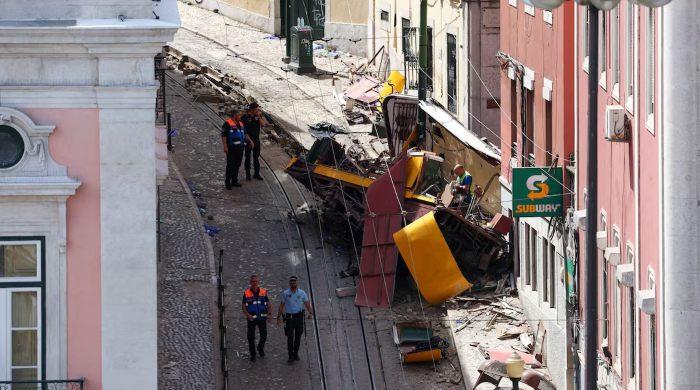
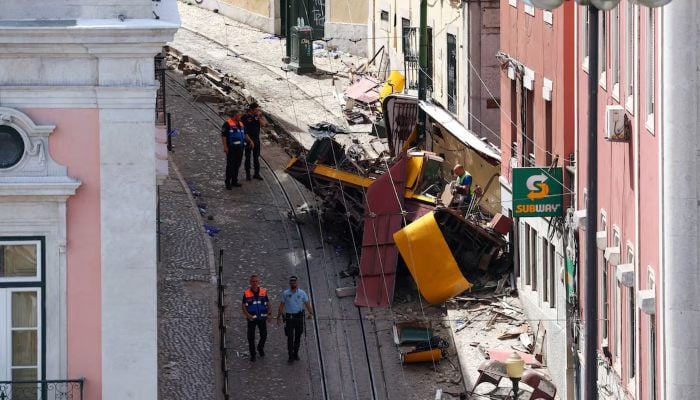
LISBON: The death of at least 16 people in an historic cable car that derailed in Lisbon has exposed flaws in the “old charm” image of the Portuguese capital, which is brimming with tourists but runs on quaint but creaking infrastructure.
In Wednesday’s crash, railcar left the track at a turn and hit a building just metres from its twin at the bottom of the steep 265-metre slope, leaving a mangled wreckage with bodies trapped inside. The traction cable linking them had snapped.
Jorge Silva, vice-president of the Portuguese association of civil protection technical experts, said a car made of a more modern material, such as carbon fibre, rather than metal and wood — the same design used since 1914 when the line was electrified — would have made the crash less violent and deadly.
“The pieces are rigid enough to withstand oscillation and normal service, but they’re not designed to withstand the impact in the event of a derailment, become twisted, leaving the passengers more exposed,” he said.
Lisbon’s trams running up and down its steep hills also date back to the mid-20th century and have a similar structure, he said.
“Investment should be made in renovating the carriages, using more modern materials, even if preserving their historic shape,” he said.
Silva said an investigation would show to what extent the pendulum cable system played a role in the crash.
The time-tested technology has had to cope with a tripling in the number of passengers on the “Gloria” funicular line in the past decade to more than 3 million people annually, as tourism booms.
The two cars, each capable of carrying around 40 people, alternately climb the slope and descend as electric motors pull the cable linking them.
Manuel Leal, leader of the Fectrans union, told local TV that workers had complained that problems with the tension of the cable had made braking difficult, but that it was too early to say if that was the cause of the crash.
The municipal transport company Carris said all maintenance protocols have been carried out. Silva said more rigorous and frequent maintenance and inspection was likely to be needed to prevent future accidents with current heavier use.
But modernisation attempts in the earthquake-prone city have also concerned engineers and architects, fearing a reoccurrence of the Great Lisbon Earthquake of 1755.
Many houses in downtown Lisbon built not long after 1755 with then-pioneering interconnected internal structures and pillars to withstand quakes have lately been adapted in a way that could compromise their original anti-seismic structures, several engineering experts told Reuters.
While newer houses built after 1958 must have seismic-resistant structures by law, no anti-seismic reinforcement is required for old buildings being renovated.
Politics
Heavy rains, flash floods leave Southern California homes caked in mud
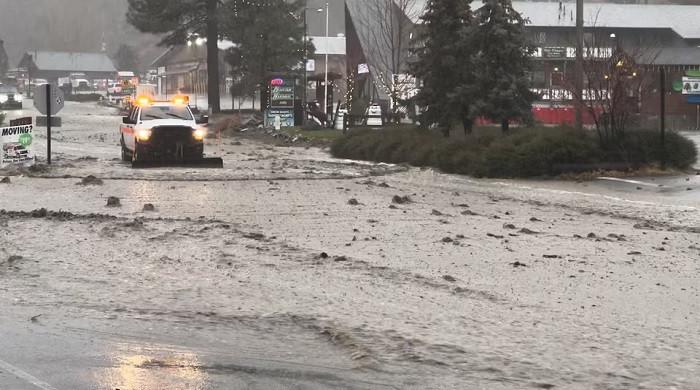

- Several dozen homes in town of Wrightwood left mud-damaged.
- Atmospheric river subsides after three days of torrential rain.
- Flood watch remains in effect for much of Los Angeles area.
Three days of heavy downpours that spawned flash flooding and mudslides across Southern California subsided on Friday, as residents of homes in the hard-hit mountain resort of Wrightwood began digging out mud and assessing damage.
The holiday storm drenched the greater Los Angeles basin with up to 6 inches of rain by Friday, with 12 inches or more measured in lower-elevation mountains east of the city, according to the National Weather Service.
The deluge, which began around Christmas Eve, was spawned by the region’s latest atmospheric river storm, a vast airborne stream of dense moisture siphoned from the Pacific and carried inland.
The torrential rains were accompanied by strong, gusty winds that toppled trees and power lines across the region, causing power outages. Heavy snow fell in the upper mountain areas.
Even before the storm hit, authorities were issuing evacuation warnings to neighbourhoods considered vulnerable to flash floods and debris flows, especially near hillsides previously ravaged by wildfires. Motorists were urged to avoid travel whenever possible.
Although rainfall was tapering off on Friday, a flood watch remained in effect for much of Southern California.
Homes swallowed in mud
In Wrightwood, a town of about 5,000 residents that bore the brunt of the storm in the San Gabriel Mountains northeast of Los Angeles, county safety inspectors began initial assessments of property losses.
Several dozen homes were heavily damaged by rivers of mud that poured through the town on Wednesday, and officials were on standby for additional debris flows that might occur, San Bernardino County Fire Department spokesman Ryan Beckers said.
“Evacuation warnings for Wrightwood are still in effect, and all the roads in the area are closed, except to residents,” he said.
Misty Cheng, 49, an accountant who owns a vacation home in Wrightwood, said she learned the property was being swallowed by a mudslide from a neighbour who sent her video footage.
“My house is buried in over 5 feet of mud,” said Cheng, speaking to Reuters by cellphone from her primary residence in nearby Upland, where she was staying when the slide occurred.
A stream of mud had forced its way into the house through a crushed wall of the attached garage, filling the living room. By the time she ventured back to the property herself to see the damage first-hand and salvage some belongings, the mud had hardened into a mound solid enough for her to stand on.
“I was able to get a truckload of personal items” out of the house, mostly from the second floor, which was left untouched, she said. Without flood insurance, Cheng said she started a GoFundMe page to raise money for repairs.
Aerial video footage posted online by the fire department showed clusters of homes and vehicles in the town caked in walls of mud as crews in front-loaders began clearing clogged roadways.
Beckers said emergency teams rescued a couple of dozen people who were trapped by high water and debris flows in their vehicles or homes over the holidays, but no deaths or serious injuries were reported in Wrightwood.
The Weather Service said Southern California was expected to dry out over the weekend, while across the country, a major winter storm threatened to begin dumping record levels of snow over parts of New York state starting on Friday night.
Politics
UAE targets online predators and data misuse with child digital safety law
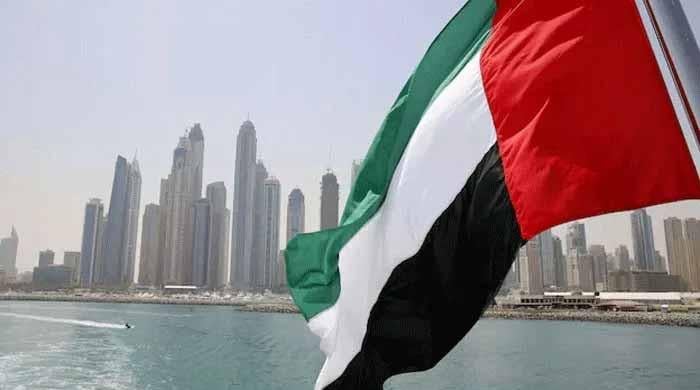
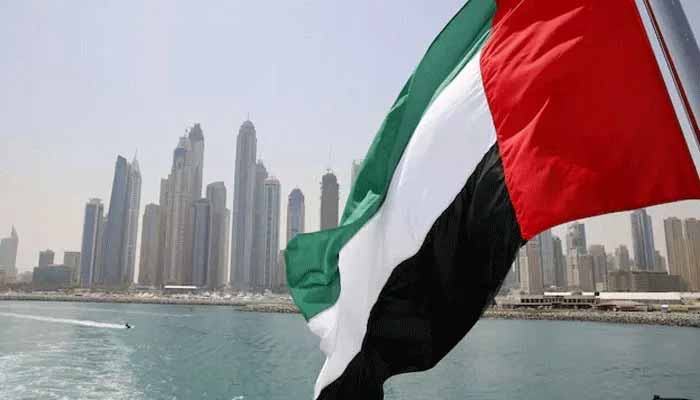
DUBAI: The United Arab Emirates (UAE) has introduced a new federal law aimed at protecting children from online predators, data misuse and harmful digital practices, signalling a tougher global approach to child safety in the digital age.
The legislation seeks to prevent strangers from anywhere in the world from accessing, tracking or interacting with children online, particularly through the collection and use of personal data such as a child’s interests, online behaviour and abilities.
Under the decree-law, digital platforms are prohibited from collecting, processing or sharing the personal data of children under the age of 13, except in limited cases such as educational or health-related services. Children are also barred from creating accounts or accessing online games and digital activities that involve gambling or betting with money.
The law applies to digital platforms and internet service providers operating in the UAE or targeting users in the country, including social media, messaging apps, online gaming platforms, streaming services, search engines and e-commerce websites.
It requires platforms to introduce default privacy settings, age-verification systems, content filtering and age-rating tools, while internet service providers must activate content controls and ensure parental consent for children’s internet use.
A Child Digital Safety Council, chaired by the Minister of Family, has been established to coordinate policy, legislation and awareness campaigns on emerging digital risks.
The decree forms part of the UAE’s broader social policy agenda, following the country’s declaration of 2026 as the Year of the Family, reflecting a wider push to strengthen family and child protection frameworks in an increasingly digital world.
Politics
Zelenskiy to hold high-stakes talks on land, security with Trump on Sunday
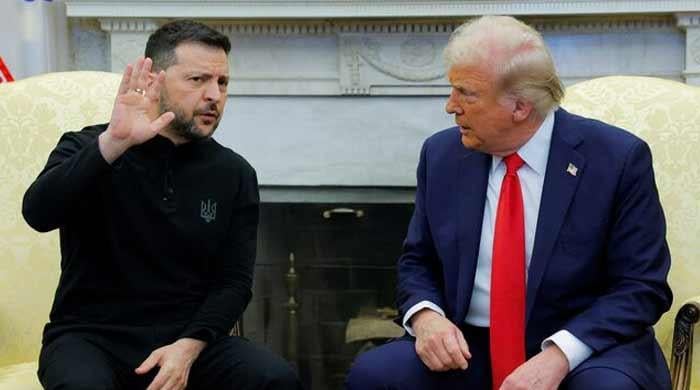
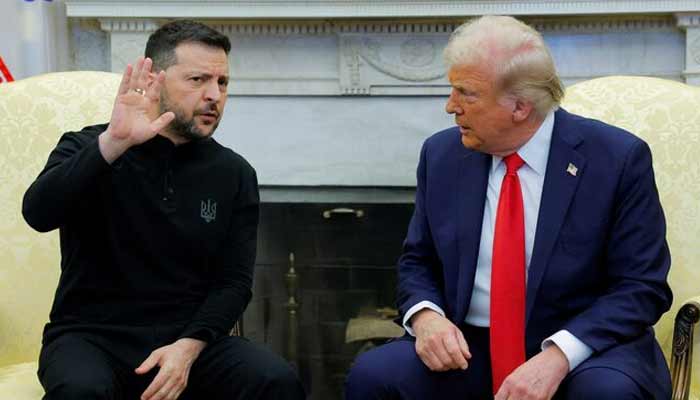
- Ukraine seeks deals to prevent any further Russian aggression.
- Peace deal, security guarantees draft “almost” at 90%: Zelenskiy.
- Zelenskiy hints raising territorial, nuclear plants issues during meeting.
Ukrainian President Volodymyr Zelenskiy will discuss territorial issues, the main stumbling block in talks to end the war, with US President Donald Trump in Florida on Sunday, as a 20-point peace framework and a security guarantees deal near completion.
Announcing the meeting, Zelenskiy said that “a lot can be decided before the New Year,” as Washington continues to drive efforts to end Russia’s full-scale war in Ukraine, Europe’s deadliest conflict since World War Two.
“As for the sensitive issues: we will discuss both Donbas and the Zaporizhzhia nuclear power plant. We will certainly discuss other issues as well,” he told reporters in a WhatsApp chat.
Russia wants Ukraine to withdraw from the parts of the eastern Donetsk region that its troops have failed to occupy during almost four years of war, as it seeks full control of the Donbas, comprising the Donetsk and Luhansk regions. Kyiv wants fighting to be halted at current battle lines.
The US, seeking a compromise, proposed a free economic zone if Ukraine leaves the area. It remained unclear how that zone would function in practical terms.
Territorial issues remain a hurdle to negotiations moving forward. Any compromises on territory should be decided by the Ukrainian people in a potential referendum, Zelenskiy said.
The Zaporizhzhia nuclear power plant, Europe’s biggest, is located on the front line and controlled by Russian forces.
Leaders to refine details in US meeting
Zelenskiy added his meeting with Trump aimed to “refine things” in the drafts and discuss potential deals on Ukraine’s economy.
He said he was not ready to say if any deal would be signed during his visit, but Ukraine was open to it.
A security guarantees agreement between Ukraine and the US was “almost ready” and the 20-point plan draft was at 90% completion, Zelenskiy added.
Wary of failed guarantees from allies in the past, Ukraine is seeking robust and legally-binding deals to prevent any further Russian aggression.
The White House did not immediately respond to a request for comment.
Trump, who has at times expressed frustration with the slow pace of progress in the negotiations, previously suggested that he would meet with Zelenskiy if he felt that a major diplomatic advance was possible.
European leaders might join the talks online, according to Zelenskiy. On Friday, he discussed “significant progress” in peace efforts with Finland’s President Alexander Stubb.
Russian demands
It was not clear which peace plan proposals Moscow would be willing to accept.
Putin’s foreign policy aide, Yuri Ushakov, spoke with members of the Trump administration after Moscow received US proposals about a possible peace deal, the Kremlin said on Friday.
When asked how Moscow viewed the documents, Kremlin spokesman Dmitry Peskov said he did not want to comment as Russia felt making remarks in public could undermine the negotiations.
Russia’s Kommersant newspaper reported that Putin told some of Russia’s top businessmen that he might be open to swapping some territory controlled by Russian forces elsewhere in Ukraine, but that in exchange he wanted the whole of the Donbas.
Even as the talks proceeded, Russia continued hammering Ukraine’s energy infrastructure and stepped up attacks on the southern region of Odesa, the site of Ukraine’s main seaports. On Friday, a Russian attack on the northeastern city of Kharkiv killed two.
Zelenskiy said he planned to raise the issue of placing additional pressure on Russia with Trump.
-

 Fashion1 week ago
Fashion1 week agoIndonesia’s thrift surge fuels waste and textile industry woes
-

 Tech1 week ago
Tech1 week agoT-Mobile Business Internet and Phone Deals
-

 Business1 week ago
Business1 week agoBP names new boss as current CEO leaves after less than two years
-

 Sports1 week ago
Sports1 week agoPKF summons meeting after Pakistani player represents India in kabaddi tournament
-
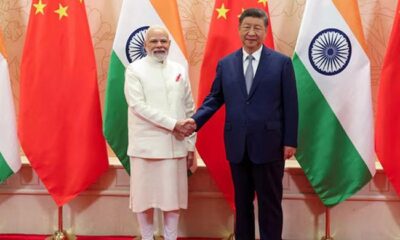
 Entertainment1 week ago
Entertainment1 week agoIndia streamlines visa rules in boost for Chinese professionals
-

 Sports1 week ago
Sports1 week agoUWCL grades for all 18 teams: Leuven get A+; Barça an A-, PSG fail
-
Sports7 days ago
Alabama turned Oklahoma’s College Football Playoff dream into a nightmare
-

 Entertainment1 week ago
Entertainment1 week agoRadiation fears rise after cracks found in $2 billion Chernobyl shield






